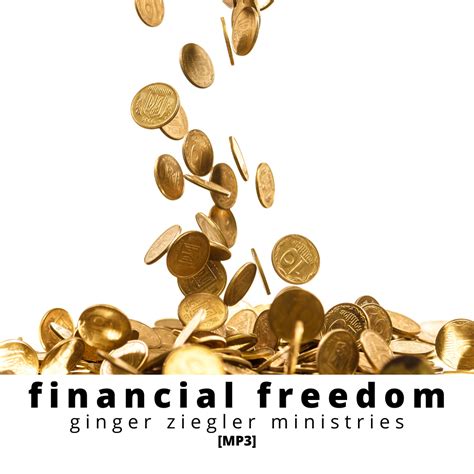Financial Freedom in Ministry: Is It Possible?
The life of a minister is often portrayed as one of selfless service, dedication, and spiritual fulfillment. However, the reality often includes financial struggles that can significantly impact both personal well-being and ministry effectiveness. The question, "Is financial freedom in ministry possible?" is a crucial one, demanding honest examination and practical solutions. The answer is a resounding yes, but it requires a shift in perspective, intentional planning, and a commitment to responsible stewardship.
What Does Financial Freedom in Ministry Mean?
Before exploring how to achieve it, let's define what financial freedom in ministry truly entails. It's not about accumulating vast wealth; rather, it's about achieving a state where finances are no longer a primary source of stress or hinderance to ministry work. Financial freedom, in this context, means:
- Eliminating Debt: Freeing oneself from the burden of loans, credit card debt, and other financial obligations.
- Meeting Basic Needs Consistently: Having enough income to comfortably cover essential expenses like housing, food, transportation, and healthcare.
- Supporting Ministry Effectively: Having the resources to invest in ministry initiatives, support staff, or expand outreach without constant financial anxiety.
- Giving Generously: Having the capacity to tithe and give to others without feeling strained financially.
- Planning for the Future: Securing financial stability for retirement or unexpected circumstances.
Can Ministers Achieve Financial Stability? The Challenges
Many ministers face unique financial challenges:
- Low Salaries: Many ministerial positions offer modest salaries, often insufficient to meet the cost of living, particularly in urban areas.
- Uncertain Funding: Funding for ministry often relies on donations, which can be unpredictable and inconsistent.
- High Demand on Time and Resources: Ministry demands often leave little time for secondary income-generating activities.
- Limited Financial Literacy: Some ministers may lack the financial knowledge and skills necessary for effective budgeting, investing, and managing finances.
How Can Ministers Achieve Financial Freedom?
Achieving financial freedom in ministry requires a multi-pronged approach:
1. Budgeting and Financial Planning: The Foundation
- Develop a Realistic Budget: Track income and expenses meticulously to understand where money is going. Allocate funds for necessities, savings, and ministry expenses.
- Set Financial Goals: Establish clear, measurable, achievable, relevant, and time-bound (SMART) financial goals, such as paying off debt or building an emergency fund.
- Seek Professional Advice: Consider consulting with a financial advisor specializing in ministry finances. They can offer personalized guidance on budgeting, investing, and retirement planning.
2. Diversifying Income Streams
While relying solely on a ministerial salary can be precarious, diversifying income can significantly improve financial stability:
- Writing and Publishing: Sharing ministry insights through books, articles, or blog posts can generate passive income.
- Consulting or Coaching: Offering expertise in areas such as spiritual guidance, leadership development, or conflict resolution.
- Teaching or Training: Conducting workshops, seminars, or online courses related to faith or ministry.
- Entrepreneurial Ventures: Starting a small business aligned with ministry values, such as a bookstore or a craft business.
3. Responsible Stewardship and Giving
- Tithing and Giving: While seemingly counterintuitive, responsible tithing and giving can attract blessings and reinforce faith in divine provision.
- Strategic Giving: Prioritize giving to areas that align with ministry goals and contribute to long-term sustainability.
4. Investing Wisely
- Emergency Fund: Building an emergency fund covers unexpected expenses without incurring debt.
- Retirement Planning: Investing in retirement accounts ensures financial security in later life.
- Long-Term Investments: Exploring low-risk investment options, with guidance from a financial advisor, can provide future financial stability.
Addressing Common Concerns: People Also Ask
Here are answers to some frequently asked questions about financial freedom in ministry:
Is it selfish to pursue financial freedom in ministry?
No. Financial stability is not selfish; it's responsible. It allows ministers to focus on their calling without the constant burden of financial stress, enabling more effective ministry.
How can I overcome the fear of asking for financial support?
Transparency and clear communication are key. Explain how the support will be used to further the ministry's mission. Build trust and relationships with your congregation.
What if my congregation doesn't support my efforts to improve my financial situation?
Openly and respectfully address concerns. Educate your congregation about the importance of supporting ministers' well-being. Seek guidance from denominational leaders or mentors.
Conclusion: A Path to Financial Freedom and Effective Ministry
Financial freedom in ministry is achievable, but it demands intentional planning, responsible stewardship, and a willingness to explore diverse income streams. By embracing financial literacy, building a strong support system, and trusting in divine provision, ministers can achieve a balance between serving their calling and securing their financial well-being. This balance allows for a more fulfilling and effective ministry, free from the constant anxieties of financial insecurity.

